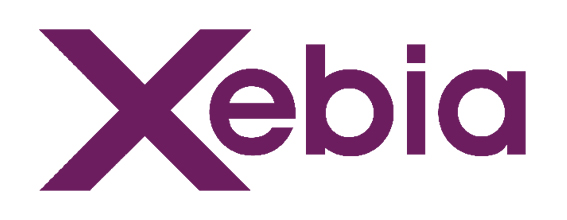

Menu


This industry led programme of Computer Science and Engineering- Cloud based DevOps Automation will familiarize students with the broad spectrum of the DevOps framework while simultaneously giving them a solid practical base with hands-on learning making them ready to apply its principles while on the job.

Passed 10+2 examination with Physics and Mathematics as compulsory subjects along with one of the Chemistry/Biotechnology/Biology or any Vocational subject.
Obtained at least 45% marks (40% in case of candidate belonging to reserved category) in the above subjects taken together.
B. Tech. With Xebia Technologies –
Tuition Fee:
Other Charges:
Prospectus Fees – 1000
Caution Money – 2000
Uniform Fee – 3250
Exam Fee -1500
General
Q.1) Why Should we choose a specialized course instead of normal B. Tech CSE?
Ans.) The industry is evolving and it needs skilled people, equipped with the knowledge of the latest tools and industry trends. Thus, specialization helps in bridging that gap and make students fully industry ready.
Q.2) Haven’t heard about Xebia? What is the company about?
Ans.) Xebia is a pioneering IT consultancy and Software Development Company headquartered in Netherlands with offices globally USA, UK, France, Dubai, and India. It has group of highly ambitious craftsmen and delivers high-quality training to cover all aspects of digital transformation- From digital strategy to technology implementation and full stack digital transformation.
The company provide innovative solutions and services to help organization become a digital winner.
Xebia’s expert collectives specialized in Data & AI, Cloud, DevOps, Business Agility, Security, Training & Learning, Software Development, Product Management and Quality Improvement, empower our brand.
The company have collaborated with universities to provide specialized courses in the technologies which are highly demanded in the industry.
Q.3) Does Xebia provide any extra support (like optional topics, certifications)?
Ans.) At the end of the course Xebia will provide a certification with the degree from the college for the specialization. There will be activities such as hackathons, tech sessions and Industry experts sessions, regular webinars and support of mentor.
Xebia will also provide support in getting internships & relevant job opportunities within Xebia and its client network.
Q.4 Why should I join this course?
Q5. What are the benefits to the program?
Ans) The students will get the following benefits;
Q6. Which are the top employers who are hiring for DevOps?
Companies such as Xebia, Ness Technologies, Netflix, Oracle, Walmart, Philips and many more…
Q7. What are the course delivery methodologies? How would Xebia ensure there is hands-on learning to learn the practical side of these technologies.
Ans) The Experiential Learning Module is designed to provide students with hands-on experience on a wide range of technologies, while working on projects that emanate from real-world business scenarios. It not only helps them familiarize with industry standard methodologies and technologies in use by distinct industries, but also helps evaluate and identify – from their own personal experience – the role and/ or projects that they are best suited to work on.
Students will also be assigned projects/case studies and will be expected to demonstrate the knowledge and concepts learnt in the class. Assessor will be marking students’ performance on various parameters expected out of program.
Case Study: Refer to real time problems that can be referred to a specific topic mentioned above which caters a particular business/ functional use case, in order to make the sessions intuitive
Exercises: The context of exercises is to ensure a thorough hands on perspective of the sessions and give a programmatic exposure to the attendees. Faculty shall drive that with expressing individual topics via hands on exercises as much as possible to ensure the effectiveness of the sessions
Assignments : To keep the attendees/participants engaged and enhance their learnings beyond live sessions, they shall be given access to a pool of assignments pertaining their credibility of the sessions with regards to the level of complexity, their shall be dedicated offline & online assignments for the participants to accomplish their learning imbibed.
Q8 Who will teach me?
Experienced Industry Experts who work on real life projects will directly engage with you and train you in the technology
Q9. What are Agile Learning Labs and what are the benefits
Ans) Agile Learning Labs specializes in experiential, hands-on training and it uses immersion to teach their approach goes beyond seeing the theory; it engages the ‘muscle memory’ of doing.
Q10. Would Xebia support us with any Industry project and what mentorship support will be provided.
Ans) The content is provided by industry leader’s, validated by educators and industry partners, and adopted by academic institutions globally.
Our team has worked with industry experts to provide insights on careers that are taking over the job market. The course content is aligned to this market research, which is updated regularly to ensure our material stays relevant to the needs of the industry.
Q11. Would I be getting any global certification from these programs?
Ans) Yes, Xebia is a NL based IT consultancy and Software Development company with offices globally USA, UK, France, Dubai, India.
Q12. What are the deliverables provided by Xebia to the students in these courses?
Ans) The Program infuses important software capabilities that are industry specific and market relevant. While the Program is continuously evolving and adding on new capabilities, currently the course and teaching offerings are built around some critical identified capabilities such as DevOps, Big Data, AI, ML, Digital Transformation Engineering
DevOps
Q.1) What is DevOps & What do DevOps Engineers do?
Ans.) Radically changing customer behaviors and volatile market scenarios are constantly pushing enterprises to evolve in the way they conduct their businesses. As a result, it has put tremendous pressure on IT organizations to deliver faster while ensuring quality. This need has spiked the demand for DevOps. DevOps can be defined as a modern strategy used to mitigate IT-related issues impacting software and service delivery. Intended to shorten the systems’ development life cycle and provide continuous delivery with high software quality, DevOps encourages an environment of communication and collaboration, within the IT organization to improve the agility and quality of their delivery.
It also helps improve predictability, efficiency, and security and empowers developers with more control to create a better production infrastructure. This further enables the empowerment of teams to build, endorse, deliver and support IT applications.
Q.2) What would be my role as a DevOps engineer?
Ans.) DevOps engineers work with IT developers towards facilitating better coordination among the various IT-related functions by streamlining and automating the integration and the deployment processes.
As a DevOps engineer, you will be managing the IT infrastructure to facilitate the delivery of product/services to end users in addition to monitoring and validating systems’ performance. You will be responsible for the overall functioning of the infrastructure and therefore need to keep yourself abreast of the latest in IT technology and terminologies. This will help you support IT developers and other teammates to perform better.
Q.3) What skills would I require to become a DevOps Engineer?
Ans.) To be a proficient DevOps engineer, you need to be adept at certain skills, which will give you an extra edge over the others. As the competition is quite high for the position of DevOps engineer today, knowing more will always keep you in the lead. These skills include programming knowledge, system administration, network and storage, infrastructure management and compliance, automation tools, visualization, cloud computing, security, testing, and not to forget good communication skills. Here, we have explained some of the important skills you need to perfect to become a preferred DevOps engineer.
Q.4) Are there courses for DevOps?
Ans.) While organizations often lookout for experienced developers who are interested in DevOps and possess the skills mentioned above, training and certifications can always add to your knowledge and confidence to be an Industry-ready DevOps Engineer. Although there are various courses available online and classroom, it is always best to opt for it from a reputed organization such as Xebia. Xebia Academy, an education business of Xebia Group offers training and certification on DevOps fundamentals to advance level courses.
Xebia Academy under its academic alliance program is currently working with several prestigious higher education institutions organizing specialized courses for computer science students in DevOps and other IT related programs in emerging technologies. Xebia is providing end to end support and helping students acquire the required skills and knowledge to become Job-ready in these technologies. Industry researched and innovative curriculum along with access to knowledge repository and mentorship with experts is provided to all the students enrolled in this program.
Students will have the option to earn globally recognized certifications such as DevOps Institute (DOI) or DevOps Agile Skills Association (DASA). These training programs are comprehensive and flexible and enable you to explore a fulfilling career in DevOps.
Q.5) What are the career prospects of DevOps?
Ans.) As enterprises across the globe are striving for digital transformation, there has been a tremendous rise in the adoption of cloud technologies, agile frameworks and this calls for better collaboration within the IT teams to improve operational efficiency. DevOps engineers have said to have grabbed jobs across many tech companies.
Mastering the art of being a DevOps expert only throws more opportunities at you. As a DevOps professional, you can choose various profiles such as a DevOps leader, Code Release Manager, Automation Architect, Q/A, Software Developer/Tester, and that of a Security Engineer.
According to the DevOps Institute’s 2019 DevOps Skill Report, 39 percent of respondents around the globe were recruiting for the DevOps Engineer/Manager title, followed by Software Engineers at 29 percent, DevOps Consultants at 22%, Test Engineers at 18%, Automation Architects at 17%, Infrastructure Engineers at 16%, and CI/CD Engineers at 16 percent.
Apart from a good job profile, you can also expect an attractive salary package
Furthermore, as DevOps is a growing technology with lot of IT processes dependent on it, professionals tend to move to related roles in a few years, growing in expertise and experience.
Q.6) I don’t have any computer science background will I still be able to cope up with this course?
Ans.) The student just needs to have the passion to learn and will be easily able to cope up with the course. Also needs the required qualification as per the university guidelines.
Q.7) Can I still get into Ai / Ml, Blockchain, Cloud type of job roles after doing this program?
Ans.) DevOps is a culture which is a basic need in the industry nowadays. This course will cover those topics required for a person to be perfect in implementing DevOps culture. After this course you can go into any field may it be Data Science, Full stack Dev, App Dev, Frontend, Cloud, Etc.
Q.8) Will I learn the latest tools as they get updated along?
Ans.) Yes you will learn the latest tools as they get updated along.